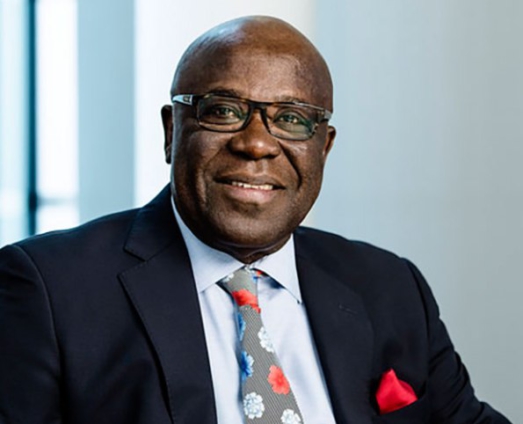Ghanaian businessman and chancellor of the University of Cape Coast, Sam Jonah, has advised President Akufo-Addo to begin solving Ghana’s economic crises by tackling the importation of foreign goods.
Speaking at the 60th anniversary of the University of Cape Coast (UCC) on Thursday, he explained that the high demand for foreign goods especially foodstuff has largely contributed to the economic challenges the country currently faces.
“I personally believe that unless and until we take concrete measures and actions to ensure an integrated economy, which would make us less dependent on foreign goods, I am afraid our economic challenges would be further exacerbated,” he explained.
Mr Jonah stressed that most food items consumed in Ghana are imported, hence the need to tackle that first.
“I think it is unconscionable that most of the tilapia we consume comes from China. Our frozen chicken comes from the Netherlands and the United States and, of course, we rely on Burkina Faso for our onions and tomatoes,” he added.
Mr Jonah said that “now, I am sure you all learnt that the Chinese having taken over and destroyed our land are now producing cocoa and exporting cassava and gari and yams. The cost of food is a major part of any nation’s economy and it behooves on all of us to do whatever we can to improve accessibility and affordability.”
This comes after the cedi was cited by a Bloomberg report as the worst-performing against the dollar worldwide.
The Ghana cedi also lost further grounds Friday morning to trade at ¢14.70 to the dollar, quotations from the forex bureaus indicate.
The free fall of the local currency is having adverse effects on importers who rely on the dollar to trade.
On Saturday, on Newsfile, a Senior Lecturer at the Department of Economics, University of Ghana, Legon, Dr Twumasi Baffour urged importers and members of the Ghana Union of Traders Association (GUTA) whose capital has been greatly affected because of the depreciation to source local alternatives for their products.
“I know that about some months ago GUTA was in talks with the Ministry of Trade looking at options available in terms of import substitution. I share in their sentiment because if you are trading and you consistently losing the value of your capital it is not a comfortable place to be,” she said.
“But the question also is that all the things that a lot of their members are importing, is there the option to source local alternatives? Is there the option for the government to sit down with these groups and see the possibility of them moving into areas where they could be producing locally and supporting local manufacturing firms?” Dr Twumasi Baffour quizzed.
Latest Stories
-
Queenmother calls on President-elect Mahama to appoint more women in his government
51 minutes -
Atletico Madrid beat Barcelona to go top of La Liga
1 hour -
Usyk breaks Fury’s heart with points win in rematch
1 hour -
Ghana-Russia Centre to run Russian language courses in Ghana
7 hours -
The Hidden Costs of Hunger: How food insecurity undermines mental and physical health in the U.S.
7 hours -
18plus4NDC marks 3rd anniversary with victory celebration in Accra
10 hours -
CREMA workshop highlights collaborative efforts to sustain Akata Lagoon
10 hours -
2024/25 Ghana League: Heart of Lions remain top with win over Basake Holy Stars
11 hours -
Black Queens: Nora Hauptle shares cryptic WAFCON preparation message amid future uncertainty
11 hours -
Re-declaration of parliamentary results affront to our democracy – Joyce Bawah
12 hours -
GPL 2024/25: Vision FC score late to deny Young Apostles third home win
12 hours -
Enhancing community initiatives for coastal resilience: Insights from Keta Lagoon Complex Ramsar Site Workshop
12 hours -
Family Health University College earns a Presidential Charter
12 hours -
GPL 2024/25: Bibiani GoldStars beat Nsoatreman to keep title race alive
12 hours -
GPL 2024/25 Bechem United keep title hopes alive with narrow win over FC Samartex
12 hours

